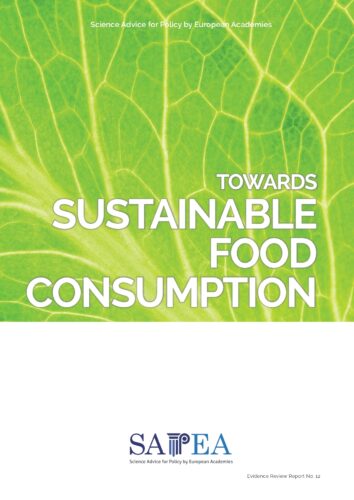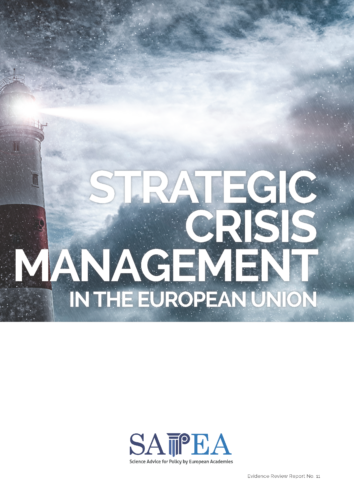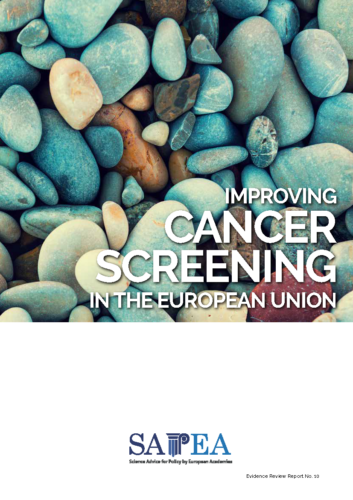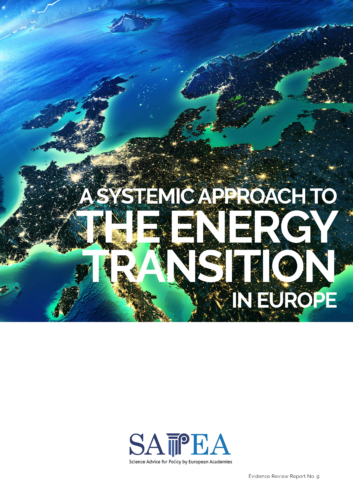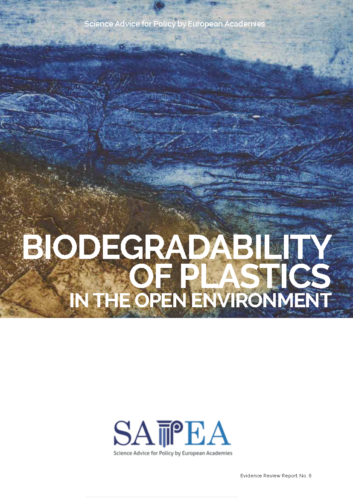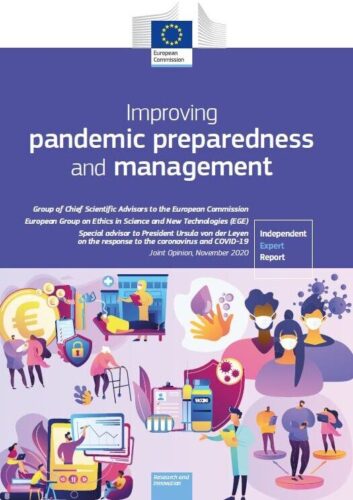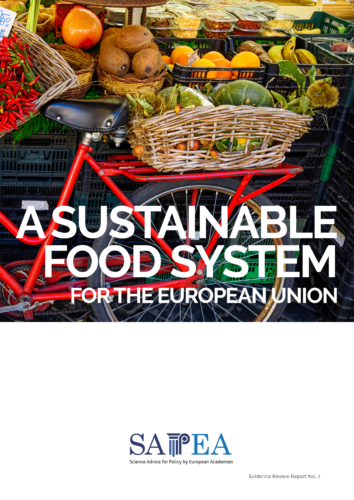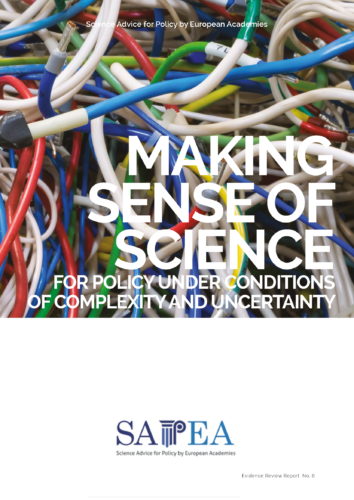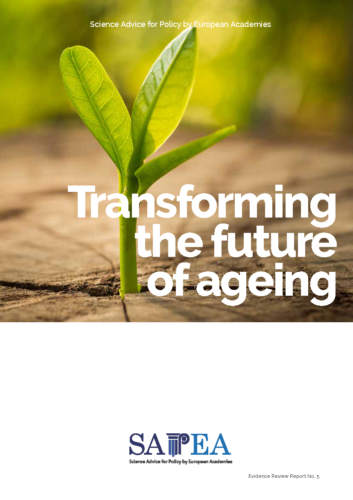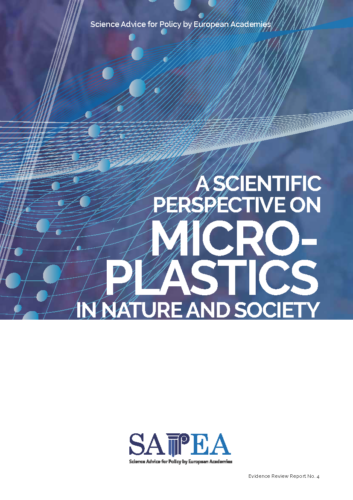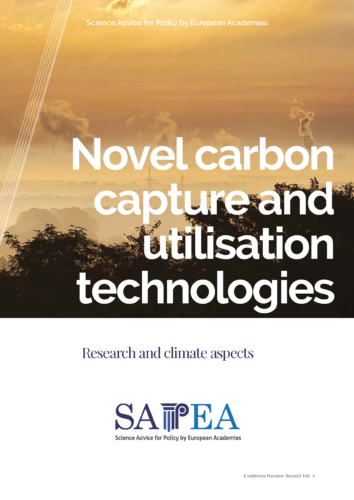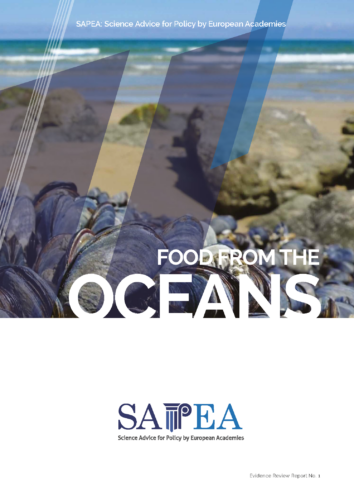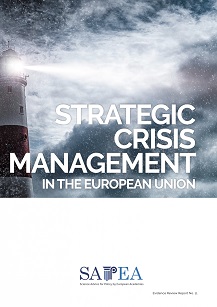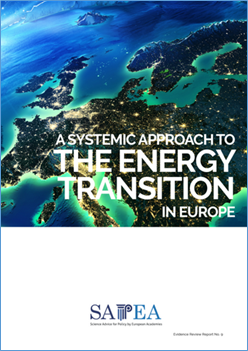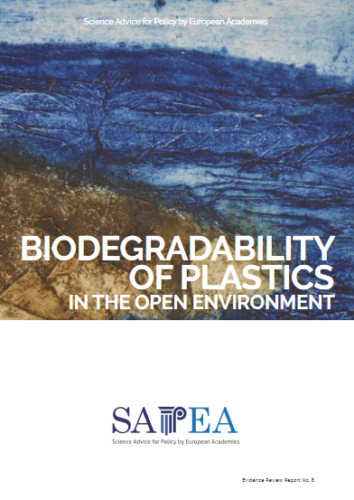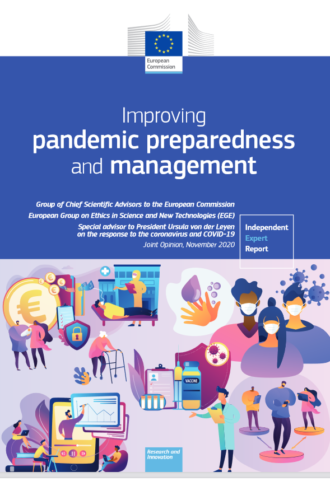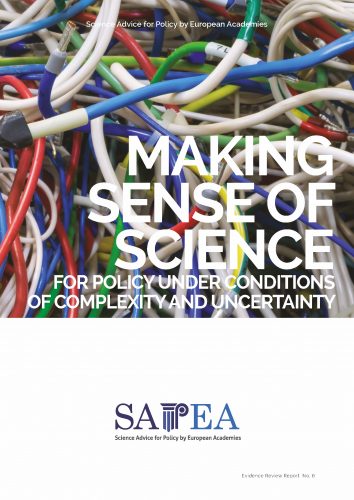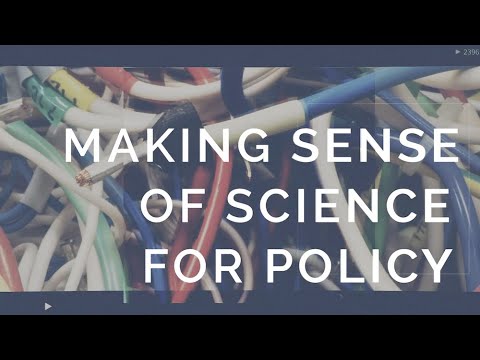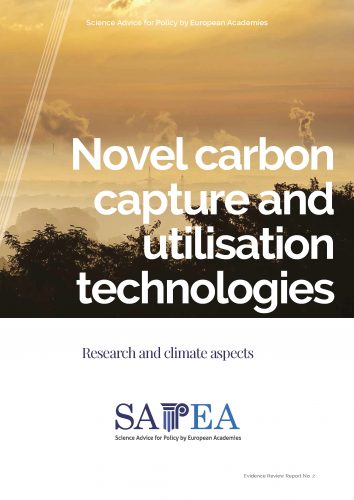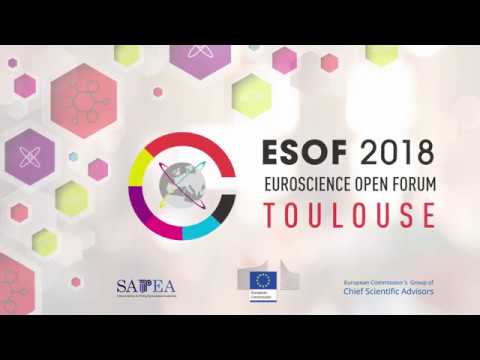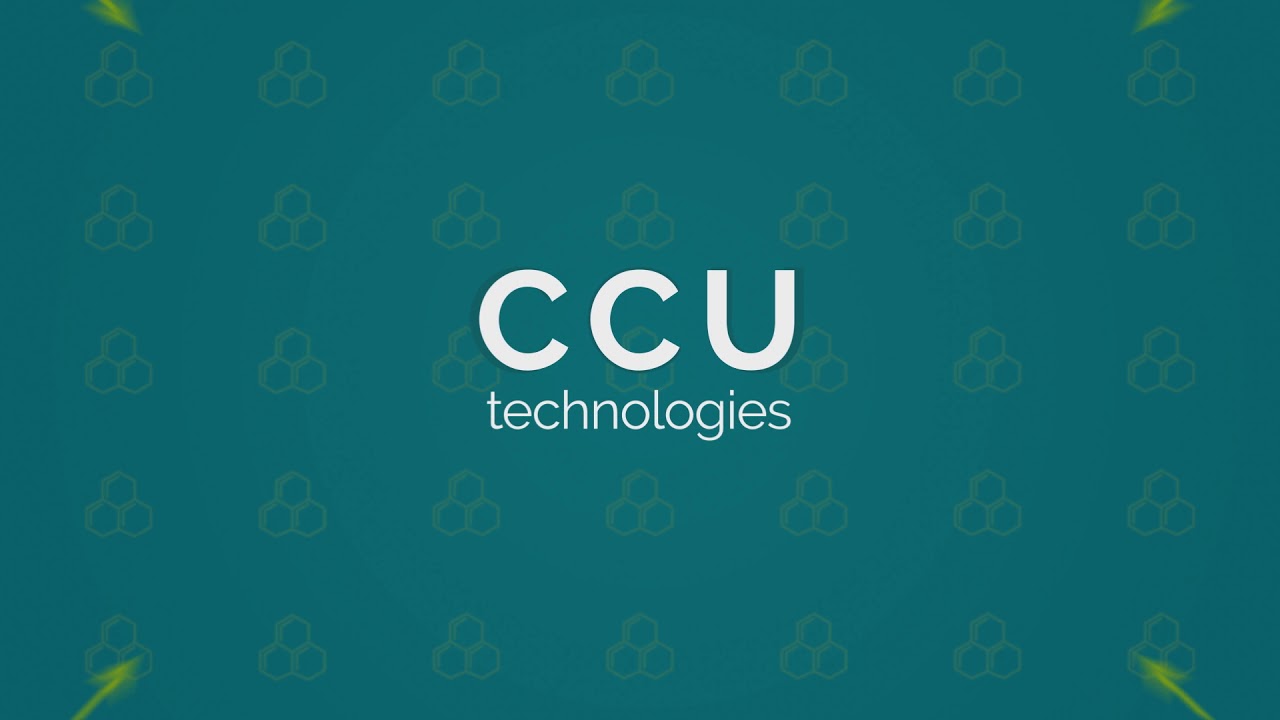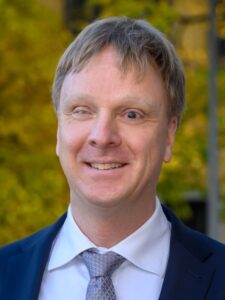Policy advice at European level
European Sounding Board on Innovation
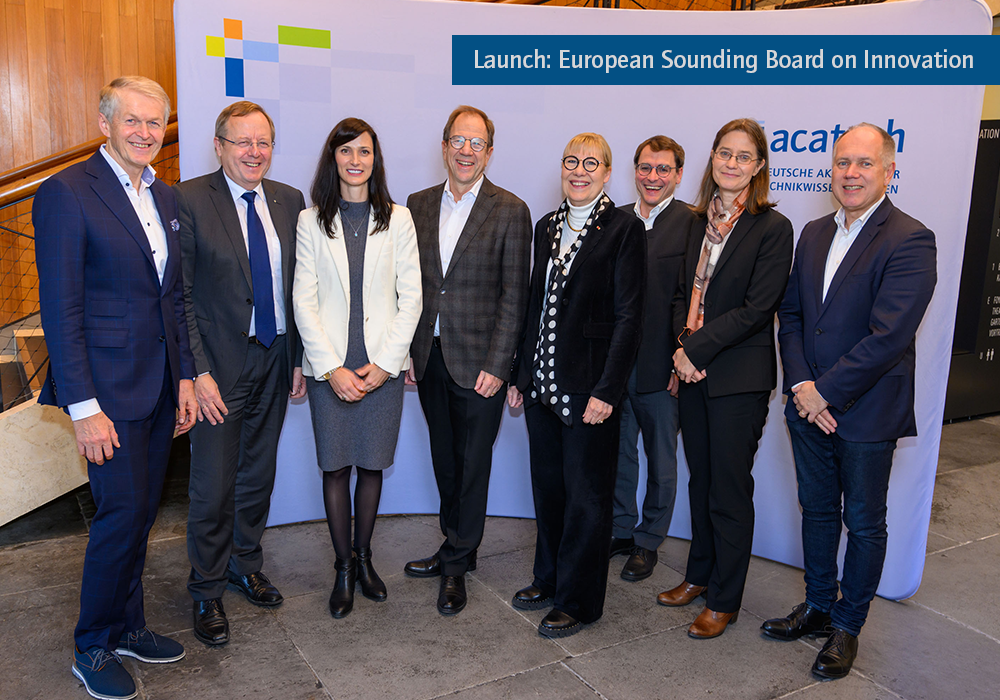
The European Sounding Board on Innovation (ESBI) was established by Mariya Gabriel, European Commissioner for Research, Innovation, Education, Culture and Youth, along with acatech President Jan Wörner and former acatech President Reinhard Ploss in November 2022 in Munich.
acatech’s objectives for the ESBI are to provide a transparent and impartial platform for an evidence-based, open and confident exchange amongst stakeholders from European industry, science and the political sector in order to enhance Europe’s capacity for innovation and to keep Europe at the cutting edge of technological and economic progress.
Science Advice for Policy by European Academies
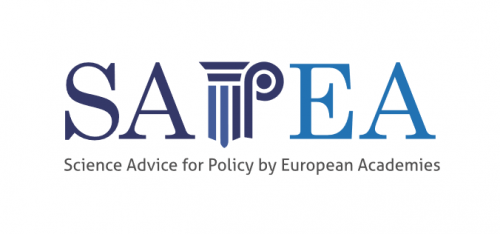
Since 2016, acatech has been the coordinator of the EU project SAPEA – Science Advice for Policy by European Academies. In addition, as the voice of German science and engineering, acatech is represented in SAPEA through the European Council of Academies of Applied Sciences, Technologies and Engineering Euro-CASE.
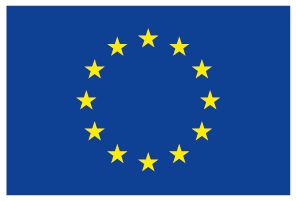
As part of the project SAPEA – Science Advice for Policy by European Academies, the five European networks of academies are part of the European Commission’s Scientific Advice Mechanism – SAM. Advice on scientific issues of relevance to policy is developed in interdisciplinary and independent working groups to the best of scientific knowledge.
The SAPEA Evidence Review Reports form the scientific basis of the scientific opinions of the Group of Chief Scientific Advisors prepared for EU Commissioners. The aim of SAPEA is to incorporate in an effective and timely fashion scientific findings at European level into the process of forming political opinion. The five European networks of academies Academia Europaea, ALLEA, Euro-CASE, FEAM and YASAS bring together the expertise of more than a hundred academies in more than 40 countries in Europe.
SAPEA publications
Successful and timely uptake of artificial intelligence in science in the EU
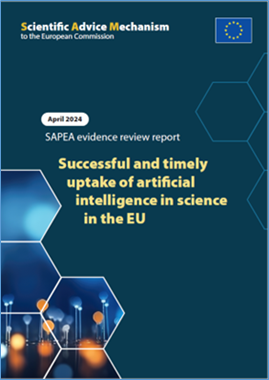
The 13th SAPEA publication discusses how the European Commission can accelerate a responsible uptake of AI in science in order to boost the EU’s innovation and prosperity, strengthen EU’s position in science, and ultimately contribute to solving Europe’s societal challenges. Based on SAPEA’s evidence review report, the Group of Chief Scientific Advisors to the European Commission (GCSA) published its Scientific Opinion. The GCSA recommends, among others, the formation of a new European institute for AI in science that would provide massive high-performing computational power, a sustainable cloud infrastructure, and AI training programmes for scientists.
Further information
Handover of the reports to Commissioner Ivanova and EVP Vestager
Click on the button to load the content from audiovisual.ec.europa.eu.
Towards sustainable food consumption
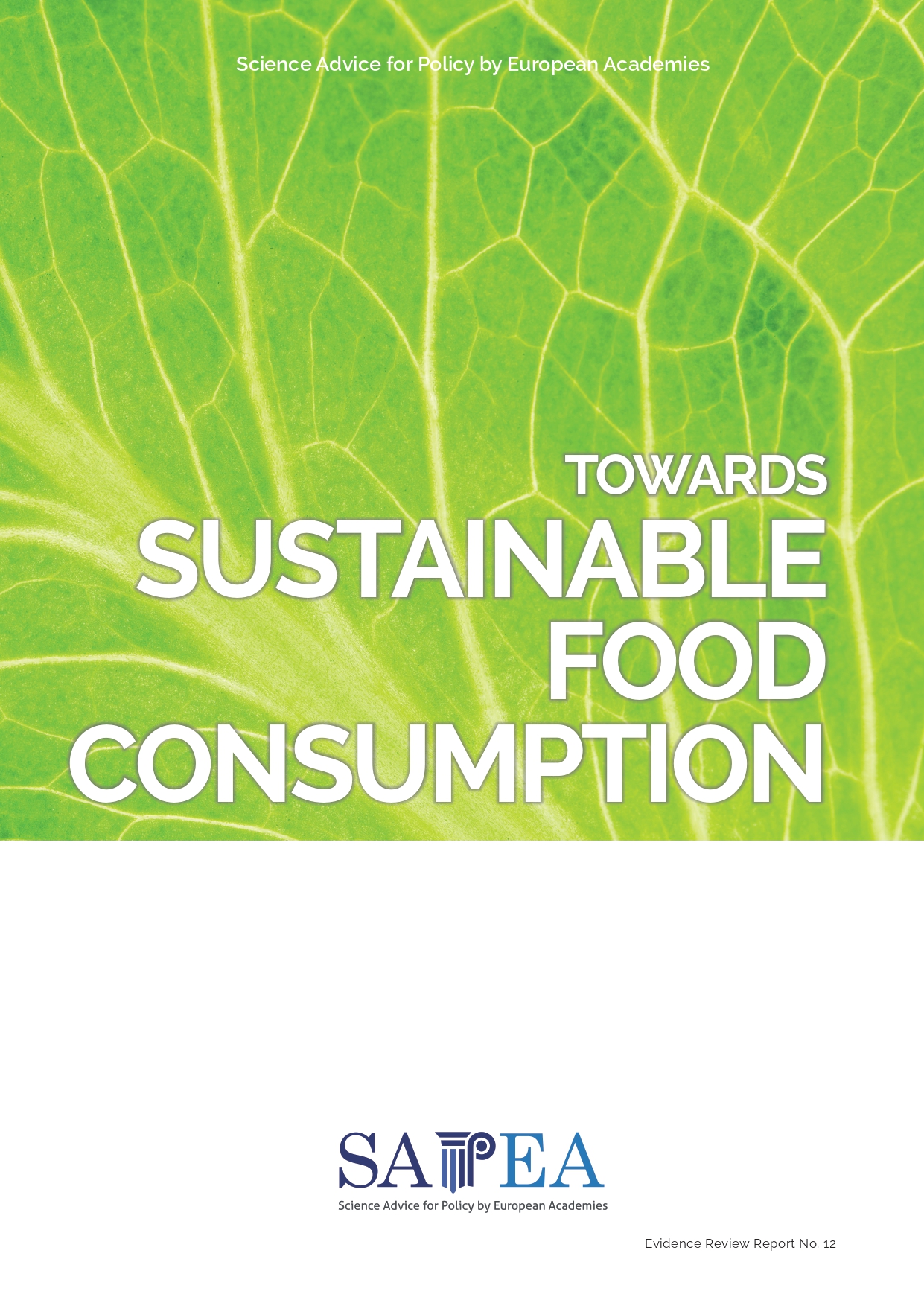
How can European food consumption be transformed to become healthier and more sustainable? This is the core question that the twelfth SAPEA report asks. It addresses key policy areas including pricing, availability, composition, and the social and digital environments that influence which foods people consume.
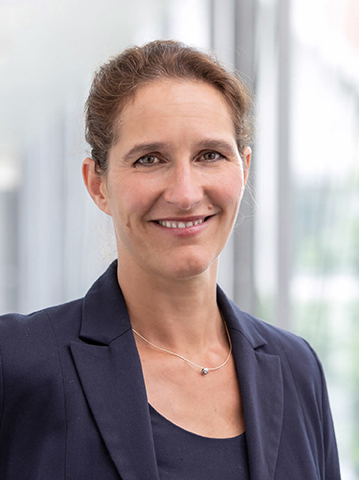
acatech member Andrea Büttner, who is a member of the SAPEA working group, was involved in writing the report. Based on the SAPEA report, the European Commission’s Group of Chief Scientific Advisors recommends a series of evidence-based measures to promote healthy and sustainable food choices. The recommendations inform the revision of the European Commission’s “Farm-to-Fork” Strategy.
Further information
Strategic crisis management in the European Union
The eleventh SAPEA report deals with how the EU can improve its strategic crisis management. The members of the SAPEA working group, including acatech Executive Board members Claudia Eckert and Ortwin Renn, emphasise in the report that strategic crisis management must be brought into alignment with broader political objectives. The report also makes it clear that the nature of crises is changing, crossing borders and sectors while having cascading and overlapping effects on society, the economy and the environment. Crises amplify inequalities and hit the weakest hardest. For these reasons, the EU must rethink its approaches to risk and crisis management.
Based on the findings of the SAPEA report, the European Commission’s Group of Chief Scientific Advisors developed a Scientific Opinion on the subject. In addition to the scientific reports, the European Group on Ethics in Science and New Technologies (EGE) published a Statement emphasising the European core value of solidarity. Solidarity can be a guiding principle for overcoming crises and strengthening societal resilience.
Further information
- Dedicated topic page on scientificadvice.eu
- SAPEA publication – “Strategic crisis management in the European Union”
- Scientific opinion of the Group of Chief Scientific Advisors (of the EU Commission) “Strategic crisis management in the EU”
- EGE: Statement “Values in times of crisis: Strategic crisis management in the EU”
- Handover of the reports to EU Commissioners Mariya Gabriel and Janez Lenarčič
- SAM Website
Improving cancer screening in the European Union
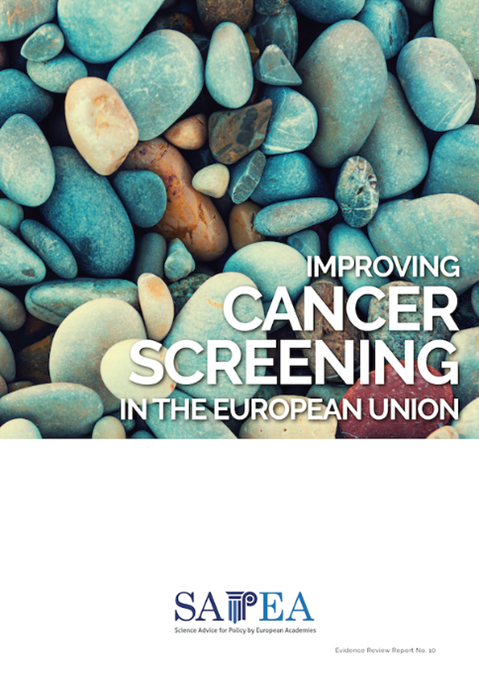 The tenth SAPEA report “Improving cancer screening in the European Union” explores how existing screening programmes for cervical, breast and colorectal cancer could be improved. It also covers the evidence for extending screening programmes to lung and prostate cancer.
The tenth SAPEA report “Improving cancer screening in the European Union” explores how existing screening programmes for cervical, breast and colorectal cancer could be improved. It also covers the evidence for extending screening programmes to lung and prostate cancer.
The experts also state that the scientific evidence does not yet support population-based screening for other types of cancer. New technologies, including blood test screening for a number of types of cancer, are not yet ready for routine use, but research is moving fast and we should be prepared to introduce new methods, especially in high-risk populations.
Organised cancer screening programmes save lives. The earlier a cancer is diagnosed, the greater the chances of more straightforward and successful treatment.
A systemic approach to the energy transition in Europe

The ninth SAPEA publication entitled “A systemic approach to the energy transition in Europe” comes to the conclusion that there are many possible pathways towards a carbon-neutral future. But achieving the target requires urgent action.
This is not just a technical challenge. To make the energy transition a reality, we need to solve a huge systemic problem, coordinating countless individual voluntary decisions on investment, consumption and behaviour across Europe.
This means transforming the entire European energy system — a change which will affect every part of our society and require huge investment during the transition. It must be done in a socially equitable way. And we already need to accelerate progress if we want to achieve the EU’s target of net zero emissions by 2050.
Further information
- Dedicated topic page on scientificadvice.eu
- SAPEA publication – “A systemic approach to the energy transition in Europe“
- Scientific opinion of the Group of Chief Scientific Advisors (of the EU Commission) “A systemic approach to the energy transition in Europe – Scientific advice to strengthen the resilience of the European energy sector”
- SAM Website
Biodegradability of plastics in the open environment
The eighth SAPEA publication entitled “Biodegradability of plastics in the open environment” describes the worldwide problem of ever-increasing plastic pollution as having an impact on the environment, animals and humans. The use of biodegradable plastics can help to reduce the amount of plastic that enters the environment but this is only the case for specific applications, such as agriculture and fisheries, or plastics in fireworks. In other areas, such as single-use packaging and plastic bags, it would be better to reduce the amount of plastic overall or to reuse, recycle or, if possible, route it into industrial composting.
The SAPEA experts also point out that the term “biodegradable” does not mean that the plastic will biodegrade under any conditions. Whether a plastic object decomposes without causing harm depends not only on the material itself but also on the environment it is in, what it breaks down into and how long the process takes. Simply labelling plastics as “biodegradable” without explaining what exactly that means ultimately leads to confusion among consumers.
Improving pandemic preparedness and management
The independent Group of Chief Scientific Advisors of the European Commission, the European Group on Ethics in Science and New Technologies (EGE) and Peter Piot, Special Advisor to the President of the European Commission Ursula von der Leyen on the response to COVID-19, have issued a joint opinion on improving pandemic preparedness and management.
Scientists nominated by SAPEA were involved in developing the opinion.
The aim of the recommendations is to contribute to efforts to
prevent new infectious diseases and take appropriate precautions, to improve collaboration across EU countries and at the global level and to strengthen systems for preparedness and management. The advisors also explore how fundamental rights and social justice can best be maintained during a pandemic. It also contains recommendations on how to approach systemic challenges in connection with health risks, especially in relation to sustainability and social justice.
Further information
A sustainable food system for the EU
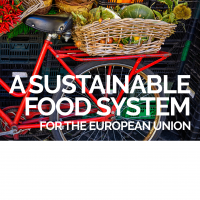 The seventh SAPEA publication entitled “A sustainable food system for the the EU” examines how we can transition fairly and quickly to a sustainable food system in Europe.
The seventh SAPEA publication entitled “A sustainable food system for the the EU” examines how we can transition fairly and quickly to a sustainable food system in Europe.
Global demand for food will increase in the future. To meet the demand, it is not enough simply to increase productivity in a sustainable way. We also need to change from linear mass consumption to a more circular economy – which will mean changing our norms, habits and routines.
Food systems have complex social, economic and ecological components and radical transformation is needed to make them sustainable. The SAPEA report lays out the science on how that transition can happen in an inclusive, just and timely way.
The report shows that this kind of behaviour change needs to happen collectively, not just individually. So we need joined-up governance at local, national and international levels.
Food production and food systems contribute significantly to greenhouse gas emissions. This can be addressed by reducing waste or directing it back into the supply chain.
The report recommends a mix of different measures. The evidence shows that taxation is one of the most effective ways to modify behaviour. Accreditation and labelling schemes can also have an impact.
In addition, reform of European agriculture and fisheries policies offer great opportunities to develop resilience and sustainability. Ultimately, there is not yet enough evidence to know for sure exactly what might work to transition to a more sustainable food system, so the steps we take should be carefully evaluated and trade-offs anticipated.
Making sense of science for policy under conditions of complexity and uncertainty

The sixth SAPEA publication “Making sense of science for policy under conditions of complexity and uncertainty” underscores that scientific advice for policy provides deeper insights and better guidance when it comes to complex topics such as tackling global challenges or climate change. But the very political issues for which scientific advice is most urgently needed are particularly complex and ambiguous. This does not mean, however, that scientific expertise should not play a role; rather, such input is particularly useful when the knowledge is uncertain and the implications of scientific research leave scope for interpretation. The unique strength of science is that it is based on rigorous enquiry, continuous analysis of the key influencing factors and exchange with the scientific community worldwide. Professor Ortwin Renn, Scientific Director at the Institute for Advanced Sustainability Studies (IASS) in Potsdam and Chair of the SAPEA expert group, who wrote the report, stated that under conditions of uncertainty science advice must be communicated in a way that explicitly and honestly assesses uncertainties, ambiguities and tensions.
Further information (German)
Further information
- Dedicated topic page on scientificadvice.eu
- SAPEA publication “Making sense of science for policy under conditions of complexity and uncertainty”
- Scientific opinion of the Group of Chief Scientific Advisors (of the EU Commission) “Making sense of science for policy under conditions of complexity and uncertainty”
- SAM Website
Transforming the future of ageing
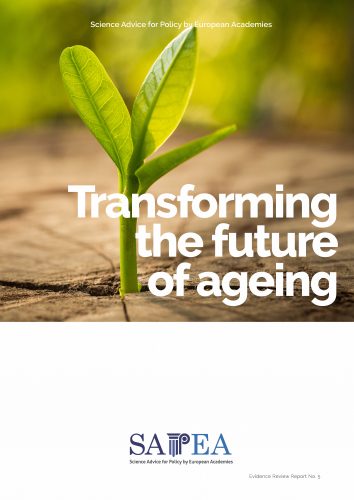 The fifth SAPEA publication Transforming the future of ageing shows primarily that the challenges of ageing must be faced by the young in particular and that society must tackle the challenges presented by ageing in every generation. The report gives an overview of the best available evidence for political measures that can contribute to the establishment of an inclusive, fair and sustainable healthcare and social system in EU countries. One of the most important results is that in the future ageing will be profoundly affected by phenomena such as climate change, air pollution and antibiotic resistance, as well as ongoing social changes. Policies will only be successful if they accommodate these changes.
The fifth SAPEA publication Transforming the future of ageing shows primarily that the challenges of ageing must be faced by the young in particular and that society must tackle the challenges presented by ageing in every generation. The report gives an overview of the best available evidence for political measures that can contribute to the establishment of an inclusive, fair and sustainable healthcare and social system in EU countries. One of the most important results is that in the future ageing will be profoundly affected by phenomena such as climate change, air pollution and antibiotic resistance, as well as ongoing social changes. Policies will only be successful if they accommodate these changes.
Micro- and nanoplastics
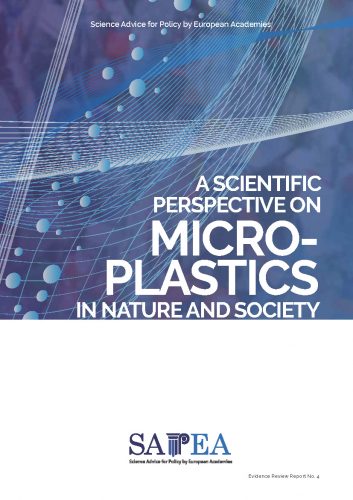 The fourth SAPEA publication examines, amongst other things, the extent to which micro- and nanoplastic pollution poses a risk to human health and the environment. The best available evidence suggests that they do not pose a widespread risk to humans or the environment, except in small pockets. But that evidence is limited, and the situation could change if pollution continues at the current rate.
The fourth SAPEA publication examines, amongst other things, the extent to which micro- and nanoplastic pollution poses a risk to human health and the environment. The best available evidence suggests that they do not pose a widespread risk to humans or the environment, except in small pockets. But that evidence is limited, and the situation could change if pollution continues at the current rate.
Further information
Improving authorisation processes for plant protection products
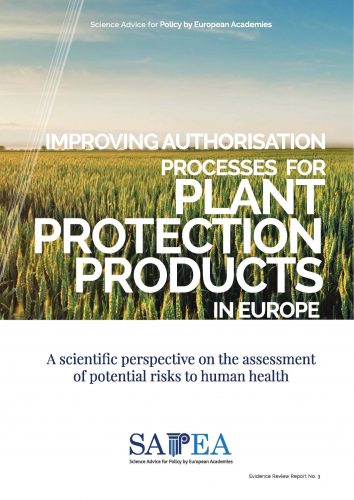 The third SAPEA publication “Improving authorisation processes for plant protection products in Europe: A scientific perspective on the assessment of potential risks to human health” examines, amongst other things, how the current authorisation system for plant protection products in the EU might be made more efficient and more transparent. The report explores the methods and procedures for assessing potentially harmful effects on human health from the use of plant protection products as well as how existing authorisation processes might be improved from a scientific perspective. The report contains proposals to improve the data that underpin risk analysis, the analysis methods as well as the conduct of assessment procedures.
The third SAPEA publication “Improving authorisation processes for plant protection products in Europe: A scientific perspective on the assessment of potential risks to human health” examines, amongst other things, how the current authorisation system for plant protection products in the EU might be made more efficient and more transparent. The report explores the methods and procedures for assessing potentially harmful effects on human health from the use of plant protection products as well as how existing authorisation processes might be improved from a scientific perspective. The report contains proposals to improve the data that underpin risk analysis, the analysis methods as well as the conduct of assessment procedures.
Further information
- Dedicated topic page on scientificadvice.eu
- SAPEA publication “Improving authorisation processes for plant protection products in Europe: a scientific perspective on the potential risks to human health”
- Scientific opinion of the Group of Chief Scientific Advisors (of the EU Commission) “EU authorisation processes of Plant Protection Products from a scientific point of view”
- SAM Website
Novel carbon capture and utilisation (CCU) technologies
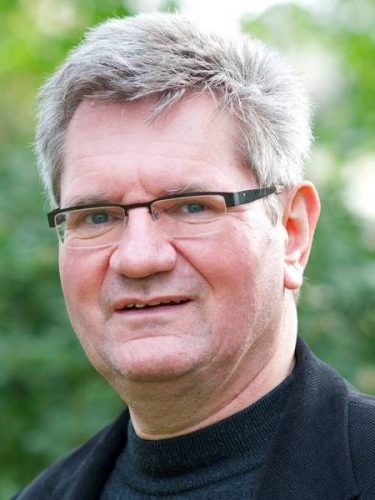
The second SAPEA publication “Novel carbon capture and utilisation technologies: Research and climate aspects” explores, amongst other things, what technologies can use carbon dioxide rather than releasing it into the atmosphere and to what extent such technologies can contribute to climate protection. One of the proposals of the report is that CCU technologies be incorporated in a systemic approach to climate and energy policy.
Further information
Food from the oceans
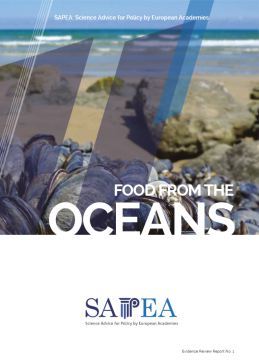 The first SAPEA publication “Food from the oceans” examines how more food and biomass can be obtained sustainably from the oceans. The publication explains why “business as usual” is not sustainable from social, economic and environmental viewpoints and proposes various options, such as harvesting seafood from a lower trophic level.
The first SAPEA publication “Food from the oceans” examines how more food and biomass can be obtained sustainably from the oceans. The publication explains why “business as usual” is not sustainable from social, economic and environmental viewpoints and proposes various options, such as harvesting seafood from a lower trophic level.
The five networks of academies involved in the EU’s SAPEA project:
Academia Europaea, the Pan-European Academy of Sciences, Humanities and Letters. Members are nominated by members of the Academy
ALLEA, the European Federation of Academies of Sciences and Humanities from the members of the Council of Europe
Euro-CASE, the European Council of Academies of Applied Sciences, Technologies and Engineering
FEAM, the Federation of European
Academies of Medicine and medical divisions of the National Academies of Sciences
YASAS, the Young Academies Science Advice Structure
More information on the English project webpage.


